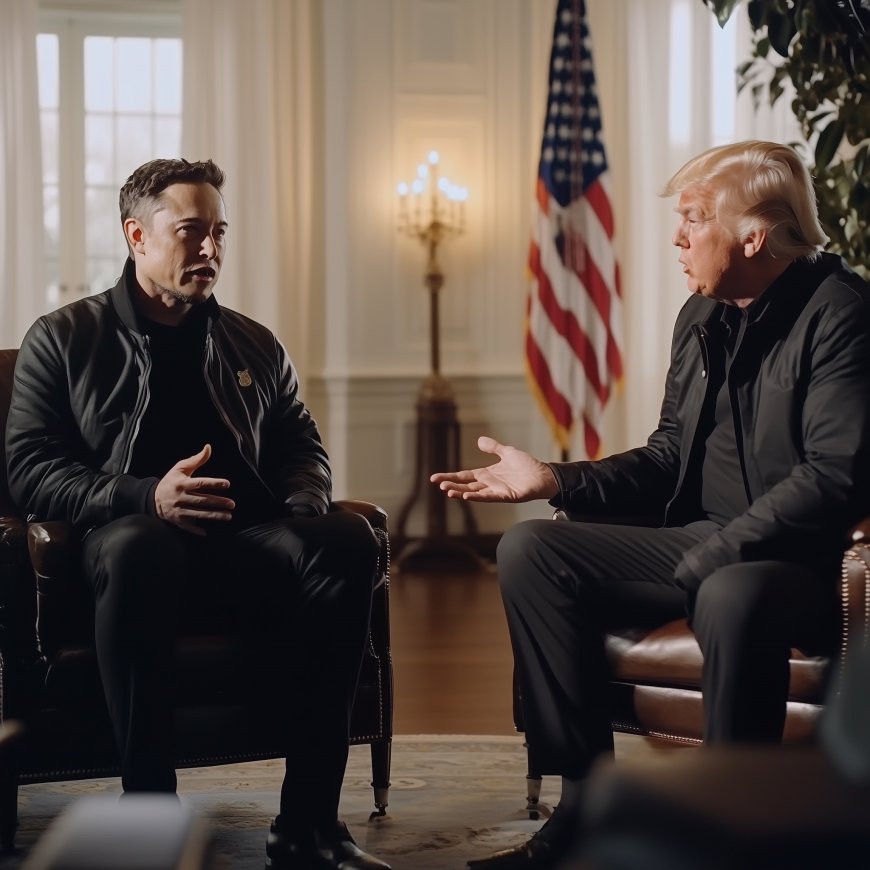Musk vs Trump: The Battle for Supremacy in Tech and Politics
The word war between Tesla Motors CEO founder Elon Musk and Donald Trump, once a president of the US.

The relationship between Elon Musk and Donald Trump is a momentous collision of titans—here, where innovation meets old power, the sparks are anything but ordinary. Take two of the most influential figures in our times: each commanding full attention on their own right, the intersection of whom creates something that sounds a bit like playing chess at high stakes on a global stage.
Elon Musk, the visionary behind Tesla, SpaceX, and still others, surely cannot be a stranger to controversy. He's a man who thinks big, shoots for the stars quite literally, and says his mind no matter how blunt it may be for convention. Donald Trump is the ex-President of the United States, a man of very strong opinions and a paramount believer in himself, and never hesitates to rally people toward any cause, however controversial.
Their public interactions have been absolutely thrilling. It all began on quite a friendly note. Musk served on several of Trump's advisory councils, offering his expertise on business and innovation. But the more time went by, the more their differences became too great to sweep under the rug. The final straw was Trump's decision to withdraw the U.S. from the Paris Climate Agreement—a decision that Musk came out hard against. Musk's response? To publicly declare his departure from Trump's councils due to his disagreement with the President on climate change.
The two would often agree on issues related to space exploration and American manufacturing as Trump's presidency progressed. But it didn't stay friendly for long. When Elon Musk started to air his misgivings about Trump more loudly than usual, over matters ranging from his handling of COVID-19 to the January 6th riots at the Capitol, the gloves came off.
Trump, not one to turn down a good fight, unloaded on Musk. He accused him of being ungrateful; after all, Tesla had received government subsidies and he was off the backs of the taxpayer. Classic Trump, a sharp, public critique that would quickly establish Mr. Musk as incredulous and disloyal.
But Musk was not the type of personality to be shut up by this. He returned with cool indifference, pointed critique, and thanked the government for its support, saying that Tesla had paid off its loans in advance, and SpaceX pulled off quite a few firsts that no private company did before. The subtext in Musk's message was clear: his success wasn't a gift from the government but was earned through innovation and in the relentless pursuit of the impossible.
The battle between Trump and Musk extends to the future of American politics. Musk has hardly kept secret his belief that it is time for new leadership, in which parties on either side should open up to fresh ideas and depart from the highly polarizing figures of the past. On the other side, Trump is gearing up for a potential rerun for the presidency, with his eyes on the White House.
What makes this saga so engrossing is not only the words thrown about but also, perhaps more importantly, the dynamics. Here we have Musk—a symbol for a new age man moving things into the future and embracing progress and innovation—pitted against Trump, who calls for a return to values and a strong nationalistic stance. This isn't just an ego fight between the two; their exchanges show deeper disagreements over what direction the United States is supposed to take in the following years.
The Musk-Trump saga is far from over, with the oncoming 2024 election season.

 Ellofacts
Ellofacts 





